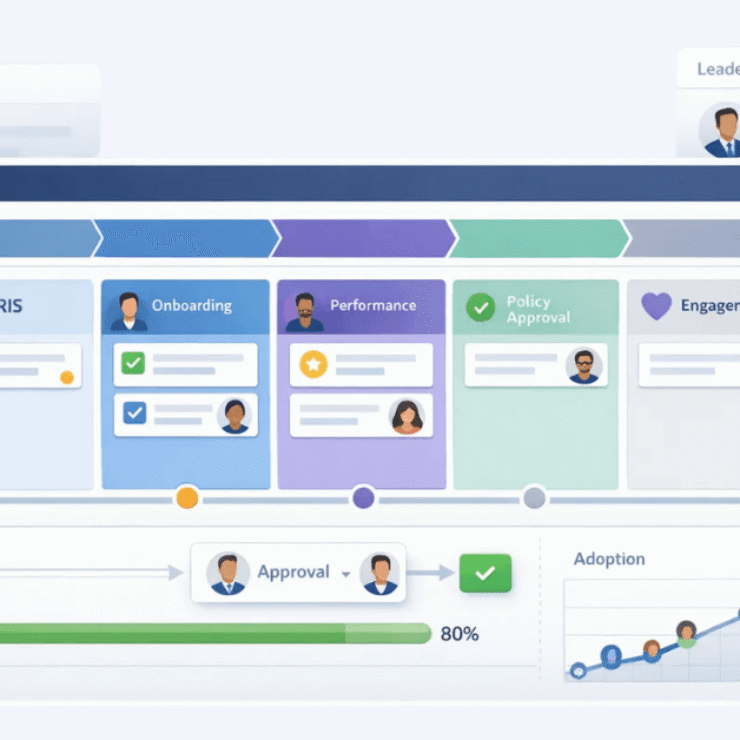Introduction
Overtime pay sounds simple — work more than standard hours, earn extra pay. But in the U.S., overtime rules vary widely from state to state, and that’s where confusion begins.
Whether you’re an employer trying to stay compliant or an employee trying to understand your rights, this guide will help you navigate overtime laws without stress or legal jargon. We’ll cover federal rules, state differences, daily vs weekly overtime, penalties, and how to stay compliant — clearly and practically.
Let’s dive in.
How Federal Overtime Pay Laws Work (Your Baseline)
The Fair Labor Standards Act (FLSA) sets the federal rule for overtime:
- Overtime applies after 40 hours in a workweek
- Overtime rate is 1.5× the regular pay rate
- Applies to non-exempt employees
- Exemptions depend on job duties + salary thresholds
Federal law is the minimum. States are allowed to provide stronger employee protections — and many do.
Why Overtime Pay Laws Matter (More Than Just “Time and a Half”)
Overtime compliance is one of the top areas where employers unintentionally make mistakes — especially when they assume federal rules are enough.
Expert Insight: In my years of working with HR and payroll teams, I’ve seen small misunderstandings of overtime laws snowball into large financial penalties. The issue isn’t bad intent — it’s not realizing that state rules often go far beyond federal law.
In FY 2024, the U.S. Department of Labor’s Wage and Hour Division concluded over 17,000 compliance actions under all labor laws, including those related to overtime and minimum wage.
Why this matters:
- Payroll accuracy
- Avoiding lawsuits and penalties
- Better trust with employees
- Predictable staffing costs
- Compliance across multi-state teams
Understanding state-specific rules is the best way to avoid trouble.
Overtime Pay Laws by State (At a Glance)
Not all states follow the federal model. Many enforce:
- Daily overtime (after 8–12 hours/day)
- Weekly overtime (after 40 hours/week)
- Double-time requirements (certain states)
- Alternative workweek schedules
- Industry-specific exceptions
States known for stricter overtime rules include:
- California
- Alaska
- Colorado
- Nevada
If your company operates in multiple states, you must use the rule that provides the greatest benefit to the employee.
Daily Overtime vs Weekly Overtime: What Employers Must Understand
Weekly overtime is straightforward: over 40 hours → overtime pay. Daily overtime is where complexity begins.
Weekly Overtime (Federal Rule)
Triggered after 40 hours in one week.
Daily Overtime (State-Specific Rule)
Triggered when an employee works beyond a certain number of hours in a single day — regardless of weekly totals.
Examples of states with daily overtime rules:
- California (after 8 hours/day)
- Alaska (after 8 hours/day)
- Colorado (some industries)
- Nevada (some cases)
Expert Insight: Many employers unintentionally violate daily overtime laws because they rely solely on weekly tracking. A single 12-hour shift in California is overtime, even if the employee only works 20 hours the rest of the week.
Daily overtime mistakes happen quietly — until they become expensive.
Industry-Specific Overtime Rules (Where Many Employers Get Tripped Up)
Some sectors have unique rules or exemptions, such as:
- Healthcare – alternative workweek rules
- Hospitality/retail – strict break + overtime requirements
- Agriculture – special or phased-in overtime laws
- Construction – public works and prevailing wage requirements
- Transportation – federal motor carrier exemptions
If you operate in a regulated industry, always check your state’s specific statutes.
Which Law Applies? Federal vs State — How to Decide
When both federal and state overtime laws apply, you must follow the law that gives the employee the greatest protection.
Use this decision guide:
- Does the state have its own overtime laws?
- → If yes, compare with federal rules.
- Which law is more protective for the employee?
- → Follow that one.
- For multi-state teams:
- → Use rules based on where the employee physically performs the work.
Expert Insight: I once worked with a company operating in California, Texas, and Florida. They initially applied one overtime rule across all locations. After switching to state-specific rules, compliance issues vanished — and employees appreciated the fairness instantly.
One policy rarely fits all. State rules matter.
Penalties, Enforcement & Recent Legal Changes
Overtime violations — even accidental ones — can lead to:
- Back pay
- Liquidated damages
- Penalties and fines
- Attorney fees
- Class-action lawsuits
- Government audits
States like California and Colorado strictly enforce overtime laws, and changes to state requirements occur frequently. Regular policy reviews are essential.
How to Audit and Stay Compliant (Step-by-Step)
Here’s a straightforward approach:
1. Understand your state’s rules
Identify whether your state follows federal only, daily overtime, double-time, or industry-specific rules.
2. Verify employee classifications
Misclassifying workers is one of the most common causes of overtime violations.
3. Track hours accurately
Use reliable time-tracking tool to capture actual hours worked.
4. Review payroll calculations monthly
Ensure daily, weekly, and any double-time rules are correctly applied.
5. Revisit policies annually
State laws change — your policies should too.
Expert Insight: Companies that routinely audit their overtime rules rarely face compliance issues. The biggest problems come from teams that assume everything is running smoothly without checking.
Consistency > correction.
Final Thoughts
Overtime laws can feel complex, but they follow predictable patterns:
- Know your state
- Know your industry
- Track hours accurately
- Apply the more protective law
- Audit regularly
Once your systems support these principles, overtime compliance becomes routine.
If you want to streamline compliance further, tools like Karya Keeper help you track hours accurately, prevent discrepancies, and ensure your team is paid fairly and legally.
FAQs
Any hours over 40 in a workweek at 1.5× pay.
California, Alaska, and some industries in Colorado and Nevada.
Not always. Exemption depends on both job duties and salary thresholds.
Yes — certain nondiscretionary bonuses must be included in overtime rate calculations.
Each employee must be paid according to the laws of the state where they actually work.
No. They follow overtime laws based on their physical work location.



